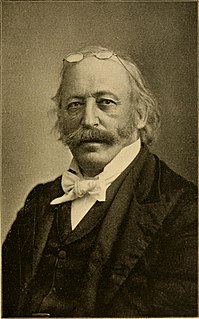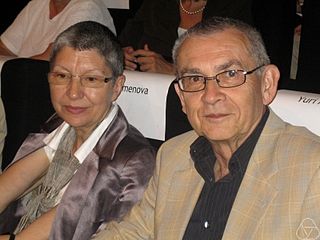A Quote by Frederic G. Kenyon
All we can say is that, as the result of a process which went on from the fourth century to about the eighth, a standard type of text was produced, which is found in the vast majority of the manuscripts that have come down to us. At least ninety-six per cent of the extant manuscripts of the Greek New Testament are later than the eighth century; and of those only a handful preserve traces of the other types of text which were in existence before the adoption of the standard text, and out of which it was created.
Quote Topics
About
Adoption
Before
Cent
Century
Come
Created
Down
Eighth
Existence
Found
Fourth
Greek
Handful
Later
Least
Majority
Manuscripts
New
New Testament
Ninety
Only
Other
Out
Per
Preserve
Process
Produced
Result
Say
Six
Standard
Testament
Text
Than
Those
Traces
Type
Types
Us
Vast
Vast Majority
Were
Which
Related Quotes
The discourse on the Text should itself be nothing other than text, research, textual activity, since the Text is that social space which leaves no language safe, outside, nor any subject of the enunciation in position as judge, master, analyst, confessor, decoder. The theory of the Text can coincide only with a practice of writing.
We must be forewarned that only rarely does a text easily lend itself to the reader's curiosity... the reading of a text is a transaction between the reader and the text, which mediates the encounter between the reader and writer. It is a composition between the reader and the writer in which the reader "rewrites" the text making a determined effort not to betray the author's spirit.
One of the things I really respect about Doug Moo is that he is constantly grappling with the text. Where he hears the text saying something which is not what his tradition would have said, he will go with the text. I won't always agree with his exegesis, but there is a relentless scholarly honesty about him which I really tip my hat off to.
If we compare the present state of the New Testament text with that of any other ancient writing, we must... declare it to be marvelously correct. Such has been the care with which the New Testament has been copied - a care which has doubtless grown out of true reverence for its holy words.... The New Testament is unrivaled among ancient writings in the purity of its test as actually transmitted and kept in use.
When I speak at my local church, which I try to do 35 to 40 times a year, I try in every lesson to take the Old Testament text or New Testament text and apply them to what is happening to me or how that applies to the audience that I'm teaching in a modern, fast-changing, technological world. I use headlines, interfaith and that sort of thing.
With Orff it is text, text, text - the music always subordinate. Not so with me. In 'Magnificat,' the text is important, but in some places I'm writing just music and not caring about text. Sometimes I'm using extremely complicated polyphony where the text is completely buried. So no, I am not another Orff, and I'm not primitive.
The impact of the Yemeni manuscripts is still to be felt. Their variant readings and verse orders are all very significant. Everybody agrees on that. These manuscripts say that the early history of the Koranic texts is much more of an open question than many have suspected: the text was less stable, and therefore had less authority, than has always been claimed.
Of the properties of mathematics, as a language, the most peculiar one is that by playing formal games with an input mathematical text, one can get an output text which seemingly carries new knowledge. The basic examples are furnished by scientific or technological calculations: general laws plus initial conditions produce predictions, often only after time-consuming and computer-aided work. One can say that the input contains an implicit knowledge which is thereby made explicit.
The Text is plural. Which is not simply to say that it has several meanings, but that it accomplishes the very plural of meaning: an irreducible (and not merely an acceptable) plural. The Text is not a co-existence of meanings but a passage, an overcrossing; thus it answers not to an interpretation, even a liberal one, but to an explosion, a dissemination.
In peace-armies discipline meant the hunt, not of an average but of an absolute; the hundred per cent standard in which the ninety-nine were played down to the level of the weakest man on parade.... The deeper the discipline, the lower was the individual excellence; also the more sure the performance.
Quotes are like prompts. A way of searching, connecting the dots. Other people's thinking has always - both positively and negatively - jumpstarted my thinking. Quotes are also a way of acting out not just a text, and not just thinking, but the making of a text. The construction of thinking. The quotes are part of those constructions and reflections. Thinking through quotes, which to say scouring a range of texts for insight, is one way to outline the process of thinking/feeling through a subject.
































